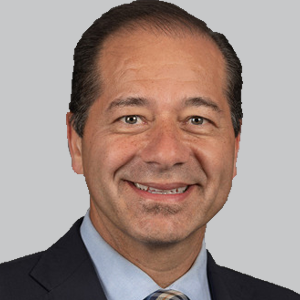According to a recent announcement, the first patient has been dosed in a first-in-human phase 1 trial (NCT05667649) assessing Regeneration Biomedical’s investigational autologous, Wnt-Activated Adipose-Derived Stem Cells (RB-ADSC) as a potential treatment for patients with mild-to-moderate Alzheimer disease (AD).1
Cleared by the FDA, this open-label, single-arm study enrolls 9 participants who are randomized into a 3 + 3 dose escalation design to test the safety of RB-ADSC injected in a soft plastic reservoir called the Ommaya reservoir. Each escalation cohort will include 3 participants, with the expectation that results will help determine a recommended dose for a potential phase 2 trial. Investigators will primarily look at adverse events (AEs), serious AEs, and dose limiting toxicities of the stem cell therapy.
"The first patient in this trial was dosed in March 2024, and no side effects or adverse events have been reported to date. Enrollment is ongoing and we look forward to completing the trial and sharing its results,” Gustavo Alva, MD, a board-certified psychiatrist and lead investigator of the study, said in a statement.1 "In Phase 2, we plan to use the same cells for other diseases with unmet or poorly met needs such as multiple sclerosis, Parkinson’s disease, traumatic brain injury and amyotrophic lateral sclerosis."
The investigational product, referred to as RB-ADSC, consists of stem cells obtained from the participant’s own adipose tissue by lipoaspirate. After collection, the stem cells are cultured and expanded outside the body, and then reintroduced into the same patient. A soft plastic reservoir (Ommaya reservoir) is implanted under the scalp, communicating with the brain cavities (ventricles). Research in 2 animal models has demonstrated that stem cells infused into the ventricular system distribute themselves into brain parenchyma.
"Despite recent advances, current treatment options are wholly inadequate, leaving a major unmet medical need. Stem cells have represented a novel approach to treatment, but evidence of efficacy has been elusive because systemically administered cells are unable to bypass the blood brain barrier (BBB) and enter the brain," Christopher Duma, MD, FACS, president and founder of RBI, said in a statement.1 "Our RB-ADSC product candidate is designed to overcome the BBB by delivering potentially efficacious stem cells directly to the brain."
He added, "In vivo studies demonstrated that stem cells injected in this fashion do locate into the ventricles and parenchyma. In addition, an IRB-approved pilot study of an earlier version of our stem cell product in patients with advanced neurodegenerative diseases generated promising results that were consistent with our hypothesis, suggesting that infusion of stem cells directly into the brain may have utility in AD and potentially other neurodegenerative diseases. We are looking forward to the results of this first-in-mankind clinical trial."
The trial includes those between 45 and 80 years of age with a mild-to-moderate AD diagnosis whose treatment was not addressed adequately by available therapy. It excludes those who’ve had stem cell implantation of any type within 3 months, existing ventriculoperitoneal shunts, and psychiatric disorder including schizophrenia, bipolar/unipolar depressive disorder, delirium.
READ MORE: Alzheon Initiates Open-Label Extensions for Phase 2 and 3 Studies of Alzheimer Agent ALZ-801
While the study primarily focuses on the safety of RB-ADSC, secondary objectives will evaluate preliminary efficacy measured by clinical assessments, volumetric MRI (Neuro Quant), cerebrospinal fluid biomarkers (phosphor-tau, total tau, and amyloid-ß42), and diagnosis imaging comparison (amyloid PET). Each participant will be followed for 12 months after treatment.
Top Takeaways
- Phase 1 trial assesses autologous stem cells for mild-to-moderate Alzheimer's, showing initial safety without adverse events.
- RB-ADSC is extracted from adipose tissue, cultured, and reintroduced via an Ommaya reservoir, aiming to overcome BBB in AD.
- Stem cells directly infused into brain ventricles demonstrate potential efficacy in neurodegenerative diseases, targeting AD's unmet needs.
- Trial focuses on safety with secondary efficacy assessments via MRI, CSF biomarkers, and clinical assessments over 12 months.
- Autologous stem cells offer advantages in easy isolation and intravenous transplantation, but long-term safety and efficacy require further study.
"We worked closely with the FDA in pre-IND meetings to create a development path for both our novel investigational product and our method for infusion, which is covered under an issued U.S. patent," Bill Miller, chief executive officer at RBI, said in a statement.1 "This clinical trial is a milestone achievement not just for us but for the field of stem cell therapies, and it gives us hope for the patients who suffer from neurodegenerative conditions for which there are no current cures."
A multitude of research data support that the transplantation of stem cells is associated with the improvement of synaptic plasticity and cognitive performance. Based on the tissue source (e.g., embryo, placenta, amniotic fluid, bone marrow, fat, menstrual blood, or dental pulp), stem cells can be roughly classified into three categories: autologous, allogenic, or induced pluripotent stem cells. Autologous stem cells are the most-used cell type owing to easy isolation and intravenous transplantation, without immunogenic and ethical issues. Still, there are some problems that need to be resolved, such as long-term safety, optimum cell source and delivery procedure, the response of donor cells to the AD-pathogenic microenvironment, and the mechanisms of action.2
